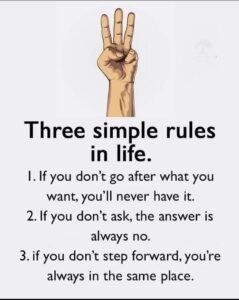“It is impossible to go through life without trust: that is to be imprisoned in the worst cell of all, oneself. Graham Greene
The dilemma that the average person faces at home, work and in society at large is how to trust people around us. Even if the exact definition of trust is open to interpretation we cannot escape from the reality that there is what is jargonized as an ‘acute trust deficit’. If we look at our own behavior ( we surely must have told some lies) and interactions ( we must have blamed others when things went wrong) we would realize that as individuals we are also not completely trust worthy and so we cannot absolve ourselves of blame. There are a variety of reasons why people belie the trust we place in them and it would perhaps help us appreciate the concept of ‘trust deficit’ better if we can dwell a few moments on these reasons. This is imperative because trust is at the heart of the evolution of human civilization for we are social animals and have to live in the company of one another and TRUST is central to a relatively harmonious and progressive society This makes it even more important for us to understand why we are also responsible for the ‘trust deficit’.
The first and foremost reason for us failing the trust test is that we make casual commitments. When we are nagged by our spouse or close family member to adhere to some set of rules, we often take them for granted and casually agree to it. More often than not, without intent to dishonor our promise we may end up not fulfilling our commitment. Such an attitude / habit if it persists will rear its ugly head in other personal and professional settings and we would ultimately end up antagonizing people and losing their trust. Nothing amplifies this more than our oft stated reply to others ‘ I will revert to you shortly’ and never revert.
Our selfishness accounts for many a deceit that we perpetrate and rationalize as trivial and insignificant. The human race is perhaps most guilty of wanting to hoard, store, amass far in excess of our requirements. We end up becoming miserly, selfish and perhaps prone to sloth, flinching goods we crave for, misappropriating what is not legitimately ours etc. Worse still is our tendency to rationalize our deeds and pull wool over our eyes to justify our illegitimate acts. Fudging our expense vouchers when claiming reimbursements, could be a minor example of such ‘trust deficit’. Obviously, over time those around us would have marked us out as untrustworthy.
Our inability to face our fears nudges us to find escape routes in lies, deceit and blame games all adding up to dishonorable acts culminating in a tangle of ‘trust deficit’. Look back at your school days and recollect how often have we come up with the most ingenious excuses to escape punishment for not doing our homework. Wind your recollections to your professional life and ask if something similar happened when we botched up a job and have to own up to the boss. Do we tend to instinctively search for a scapegoat to pass blame on to, no sooner we see a problem cropping up that could be attributed to our inefficiency, tardiness or mistake. How do our superiors, co workers and team members judge us when the blame game is perpetrated by us?
Greed- be it for riches, power or prestige weaves a web of lies, blatant cheating, despicable betrayals to hammer in the final nail in the coffin of ‘trust deficit’. Biblically when Cain after killing Able uttered those infamous words ‘ Am I brother’s keeper’ to God when questioned about his brothers whereabouts, he had established the concept of ‘trust deficit’ that his descendents would have to burden with. History is witness to the ‘trust deficit’ that each age and generation was subjected too. When sons imprisoned fathers or siblings to usurp the crown; when the Watergates and the ‘read my lips’ became black marks in modern day history and when almost every country is battling corruption at all levels, it is the culmination of centuries of ‘trust deficit’ that has pervaded the very essence of life.
The reality though is that ‘trust deficit’ exists because those who are not guilty look the other way and condone the ‘cheating’ the ‘looting’ and the ‘abuse of power’. We will have to continue to trust our family, our friends, members of our society and the law makers too or else living in society would become a horrendous burden if we viewed everyone with suspicion. However as responsible citizens we have to proactively participate in the process of cleansing the system and restoring the ‘trust’ in every sphere of life.
Remember: “You may be deceived if you trust too much, but you will live in torment if you do not trust enough” Frank Crane
Try this:
- How would you realistically (not idealistically) behave in the following situations?
- You are not well prepared for an exam. During the exam the supervisor has left the room and for the next one hour the class remains unsupervised? You are desperate because you can just about solve 3 out 5 questions and you are not sure of passing.
- You find a wallet in a mall with a large wad of currency but no identification of the owner of the wallet. You are unsure as to how the authorities at the mall would trace the owner of the money and you believe they may pinch the money. You are also cash strapped and the college tuition fees are due to be paid in a weeks time.
- You are traveling with an intimate friend in the car. Due to an error in judgment by your friend who is driving the car, the car knocks down a passing two wheeler. The rider of the two wheeler is very seriously hurt and is rushed to hospital. As the sole independent witness to the incident the police are questioning you. What kind of an approach will you take in answering the questions. (Remember your friendship is also at stake and if the two wheeler driver dies the whole matter becomes extremely serious)
- Make it a point to try your best to do the following henceforth
- Own up your mistakes
- Stand up for the truth
- Have an independent point of view on all matters
- Never condone dishonesty
This post is courtesy www.actspot.com
You are also invited to visit our weekly Inspirational and Motivational Blog www.poweract.blogspot.com






This Post Has 0 Comments
trust is like seeing , hearing, speaking but not without disbelief
shashi